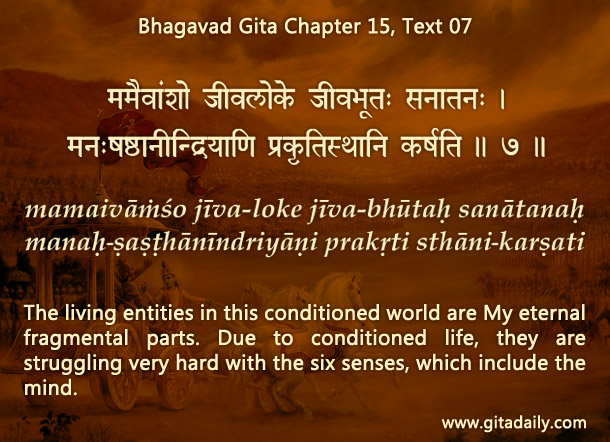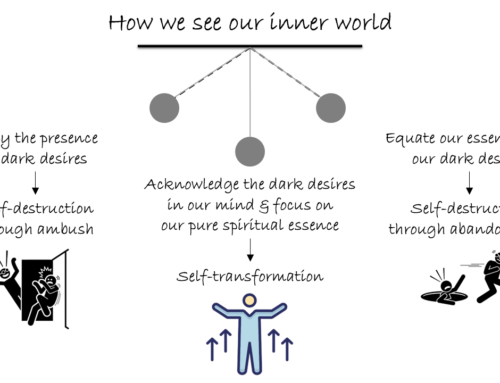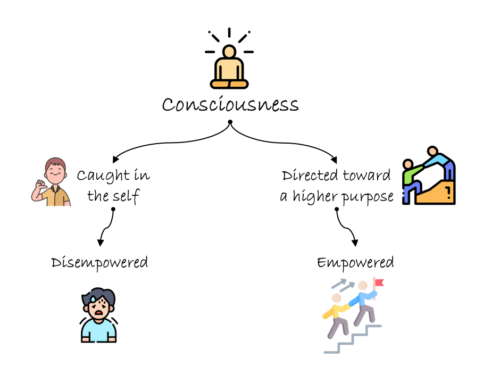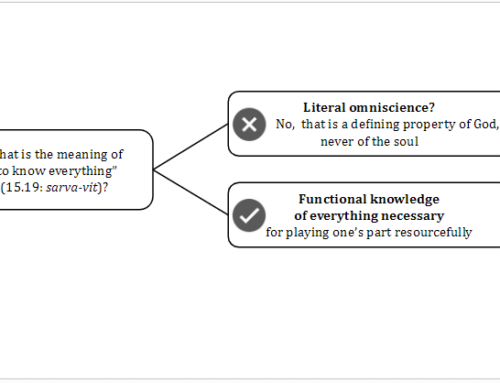The oldest lie in existence is the idea that we can become God.
We are constantly targeted by lies, some spread intentionally by those who wish to mislead and others absorbed unconsciously as implicit beliefs. Among the many lies that persist, the notion that we can become God is the most ancient and insidious. It has taken various forms over the ages—such as the idea that we are already God and have simply forgotten it, or that we can become God by following mystical practices, often costly. Other versions suggest that we can achieve godhood through the mercy of someone who has already realized this status or, in more modern versions, that technology can make us gods.
Why is this a lie? Because we are finite beings, and while we can expand our capabilities, we are still limited. The difference between us and God is not one of degree but of category. The finite can expand enormously but remains finite. Kings and emperors may amass enormous power, and mystics may acquire mystical abilities, but all remain subject to time, decay, and death.
God, by definition, is the supreme being, superior to all of us and the material nature that binds us. We, on the other hand, may temporarily seem to have the upper hand over nature, but that power is fleeting. This notion that we are God is a falsehood that we can infer logically and that the scriptures clarify as well. The Bhagavad Gita (15.7) explains that we are eternally parts of God. When we refuse to accept our position as His parts and instead strive to become God, we become trapped by our own minds and senses, compelled to struggle and suffer in the futile hope of achieving godhood.
This lie is the oldest because it is the very cause of material existence. In the divine realm, God is celebrated as the supreme, and all beings find their joy and fulfillment in loving Him and relishing His love. It is the false belief that we are God, or can become God, that keeps us outside this world where He is honored and His love experienced in its purest form.
Today, while many have rejected the idea of a spiritual paradise, they hold onto the vision of a high-tech paradise. Technology has brought unprecedented conveniences and luxuries, yet it has failed to fulfill its promise of happiness, let alone godhood. Instead, technology often becomes an addiction, entrapping us in unhealthy habits that, rather than empowering us, make us more dependent and deprived of inner joy.
As long as we cling to this lie, we suffer in two key ways. We are deprived of the love of God, which alone brings lasting happiness, and we become increasingly entangled in material cravings and dependencies, chasing after fleeting pleasures that often leave us with more misery than joy.
Fortunately, Gita wisdom helps us see that the notion of being God is a deception. By renouncing this lie, we lose only the illusion that leads to tribulation. So, when the temptation to think we can become God arises—whether through wealth, power, fame, or any other means—let us firmly reject it, saying, “Good riddance and goodbye.”
Summary:
- Among the many lies we face, the oldest is that we are or can become God.
- This falsehood can be refuted both logically, through our awareness of our limitations, and scripturally.
- By rejecting this lie, we can free ourselves from dependency on material things that promise happiness but deliver pain, and instead experience the love of God, which alone brings lasting joy.
Think it over:
- Which logical or scriptural point most convinces you to reject the idea that we can become God?
- Contemplate how any particular use of technology has entangled you, and consider whether this reflects a misdirected hope of achieving godlike control.
- Reflect on which points persuade you that rejecting this lie benefits rather than deprives us.
***
15.07 The living entities in this conditioned world are My eternal fragmental parts. Due to conditioned life, they are struggling very hard with the six senses, which include the mind.





Leave A Comment